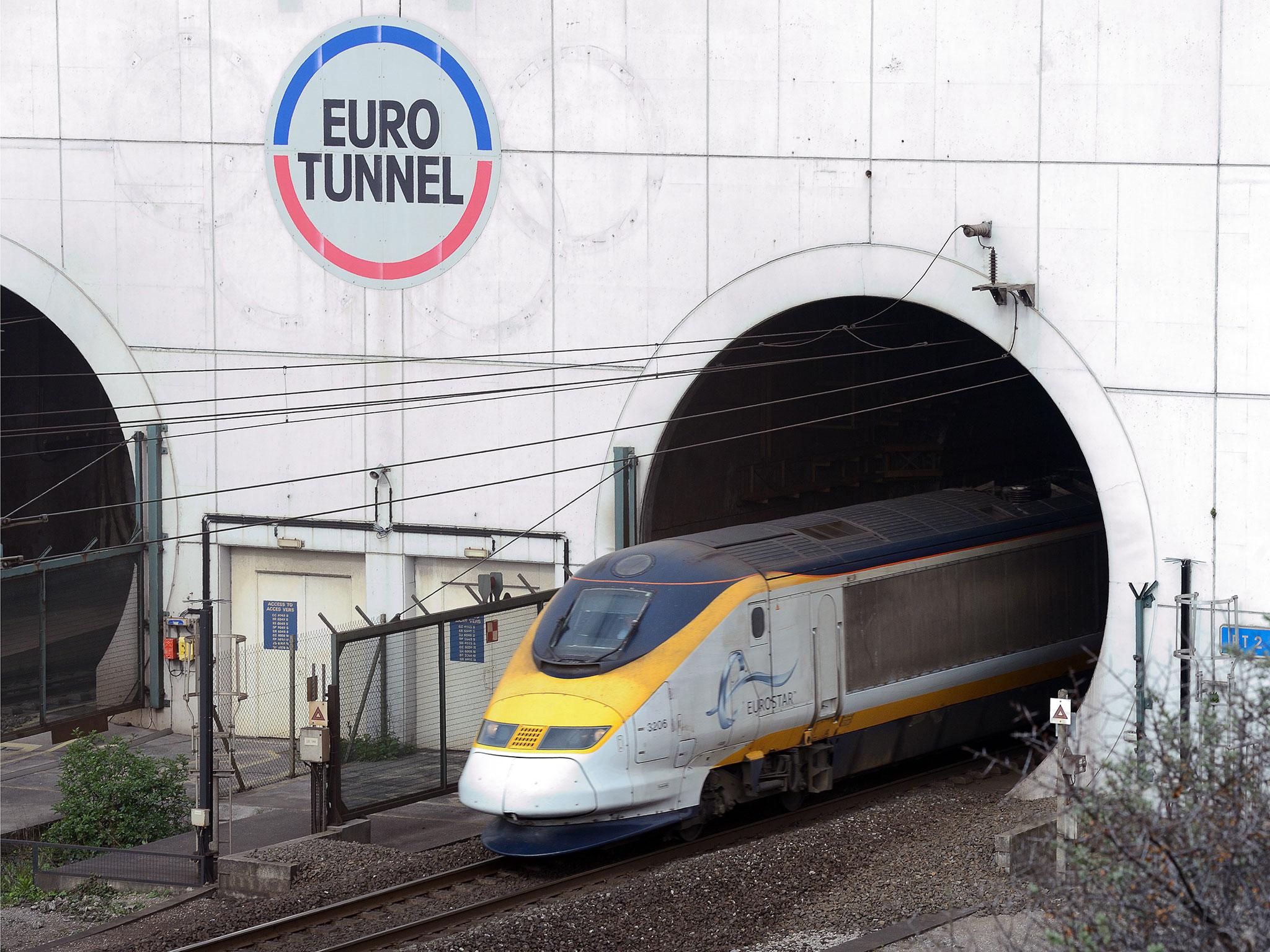Refugee Abdul Rahman Haroun given nine-month prison sentence for walking through Channel Tunnel to reach UK
The 40-year-old has been granted asylum in the UK but was prosecuted under a law dating back to the 1800s

A Sudanese refugee has been handed a nine-month prison sentence for “obstructing” trains by walking through the Channel Tunnel in a desperate attempt to reach the UK.
Abdul Rahman Haroun, 40, was granted permission to stay in Britain after being caught walking near the end of the 31-mile tunnel in Folkestone on 4 August last year.
He was prosecuted under Victorian legislation – the Malicious Damage Act 1861 – for “obstructing an engine or a carriage using a railway”.

Haroun, who was granted asylum by the British Government on Christmas Eve, pleaded guilty on Wednesday at Canterbury Crown Court.
He was sentenced to nine months in prison but walked free from court because of the time already served at HMP Elmley in Kent, where he was held until being bailed in January.
Sentencing Haroun, Judge Adele Williams said: “You not only put your own life in danger but, in my judgment, you put the lives and safety of others in danger.”
Kate Adams, from Kent Refugee Help, said he had “fantastic” legal representation and support but should never have needed to defend himself his actions in court.
She told The Independent campaigners had originally hoped for the charges to be dropped after Haroun was granted asylum and that his lawyers were now considering launching an appeal.
“We’re very pleased that he’s not going back to prison but it has been a very long process and it’s been incredibly stressful for him,” Ms Adams said.
“The case was very much about corporate interests over human rights – Haroun has been made an example of.
“People will carry on risking their lives trying to cross from Calais to the UK and some of them will die.”
Philip Bennetts QC, speaking for the prosecution, told the court that Haroun was caught by police at as he neared the end of his journey, dodging high-speed trains on different sides of the Tunnel.
“He was asked how he had got into the tunnel and he said: ‘I came from France, always trying to get here’,” Mr Bennetts said, adding that the defendant had jumped over a perimeter fence in Calais.
In an interview with the Home Office, Haroun described how he had been persecuted by the Janjaweed militia – who operate in Darfur and have been accused of ethnic cleansing - forcing him to flee his home in 2004.
He ended up in a camp at the Kari-Yari dam on the Sudan-Chad border where he spent several years before journeying to Europe via Egypt, Libya and the deadly boat crossing to Italy, and on to France.
Speaking through an interpreter, he told police following his arrest: "I came here for protection and to be safe..it was the only solution."
Mr Bennetts said Haroun had caused "significant disruption" and a "significant economic consequence" and led to delays of up to four hours for cross-Channel travellers.
Aid workers and refugee charities condemned his prosecution, accusing authorities of using “an arcane piece of legislature” in a politically-motivated attempt to deter thousands of migrants in Calais from attempting the same journey.
The Calais Migrant Solidarity group raised fears that the prosecution could be used to have Haroun deported at a later date.
A survey of refugees living in the Jungle carried out earlier this year by Médecins Sans Frontières (MSF) found that more than 80 per cent of its 6,000 inhabitants were aiming to reach Britain.
An unknown number of asylum seekers have been suffocated, run over, hit by trains, electrocuted in the Channel Tunnel and drowned in desperate attempts to swim to England.
Anglo-French efforts to bolster border security continue, including the investment of millions of pounds on fencing at Coquelles and extra perimeter barriers.
But rising number of refugees are still flocking to camps in Calais, according to census figures released this week by Help Refugees and L'Auberge des Migrants.
Volunteers said the number of unaccompanied children has risen by almost a third in one month, and that the largest group of migrants were from Afghanistan, followed by Sudan.
Additional reporting by PA
